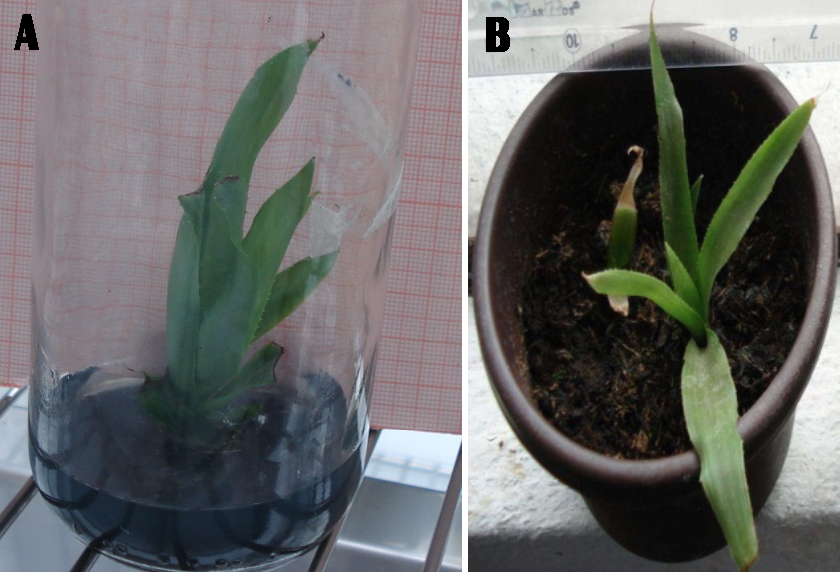 |
|
Bromelia karatas L. is a species native from America, used in traditional medicine as an alternative in the treatment of diabetes mellitus. Overexploitation and change in land use have led to a drastic decline in species. In the present work, in vitro cultures were established from B. karatas seeds and their total phenolic content was determined. To promote the germination of the seeds several scarification treatments were tested. Furthermore, the seeds were cultured on Murashige & Skoog (MS) media containing different concentration of N-6 benzyladenine (BA) with 2,4-dichlorophenoxyacetic acid (2,4-D). Obtaining a higher percentage of germination (100%) when exposing the seeds to H2SO4 (98%, 5 min) was obtaining. Additionally, in in vitro cultures, the germination time was considerably reduced (36 times), compared to the data reported in the field. Highest percentage of callus induction of leaf sections (1.5 cm2) of adult specimens and plants germinated in vitro in MS media containing BA (1.0 mg · L-1) + 2,4-D (0.0, 0.5, 1.0, and 2.0 mg · L-1) was established. Mature fruits of B. karatas resulted in the greatest phenolic content (1,110 mg GAE · 100 g-1, biomass, dry weight (DW)) measured by the Folin-Ciocalteu reagent method, while the smallest content was recorded for callus and the leaves of in vitro seedling germinated recorded 205 and 741 mg GAE · 100 g-1 DW, respectively. These results provide novel data, which can be part of programs for sustainable use and conservation of this species of ethnobotanical importance.
Keywords: Bromelia karatas, in vitro culture, seed scarification, total phenolic content.
|
|
 |

